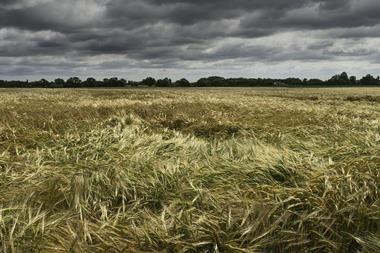Alex Waugh, director general of the National Association of British and Irish Flour Millers, on the potential benefits of sequencing the wheat genome – and why we may have to wait to see them
The breakthrough made in sequencing the wheat genome (see p6) is excellent news. As a combination of three original species, wheat is very complex, with a genome several times larger than that in humans.
So it can be challenging to work out which genes – or gene combinations – are critical to specific characteristics, such as starch, protein quality, or disease resistance.
This new genome map will enable plant breeders to target specific improvements and discover whether theory can be translated into commercial reality. So we may see bread wheat varieties perfectly suited to the UK climate, that use nitrogen more efficiently, thus improving crop sustainability; are easier for those with gluten sensitivity to digest; or are more resistant to fusarium and other common diseases. Existing breeding programmes target all of these, but a better genetic map will help achieve them more easily.
However, we should not expect rapid progress. Developing new varieties that not only have the desired trait but retain other important attributes is always a major task. Resistance to disease, for example, often comes with a penalty in terms of overall yield.
Furthermore, the process of ensuring stability of a new variety, testing it in field conditions and ensuring there is sufficient seed available takes five to eight years.
What’s more, one of the techniques with the most potential to take advantage of improved understanding and create new varieties quickly is ‘gene editing’. This does not require the introduction of DNA from any other species, but instead entails editing a very small portion of DNA and thereby slightly modifying the plant.
Breeders had hoped this more precise form of modification would not be highly regulated as no ‘foreign’ DNA is introduced. However, a recent European Court judgement has concluded that even this type of work should be considered Genetic Modification (GM) and subject to relevant EU rules.
Given the difficulty in gaining approval for any new GM events in Europe, this could kill the use of gene editing technology in EU plant breeding. So unless the legal position changes, it is likely to take even longer for the understanding of the wheat genome to deliver benefits in the EU. Instead, innovation is likely to forge ahead in other parts of the world. Post-Brexit, this may or may not include the UK – depending on public attitudes here and as yet unmade decisions about the extent of regulatory alignment between the UK and the EU.





























No comments yet